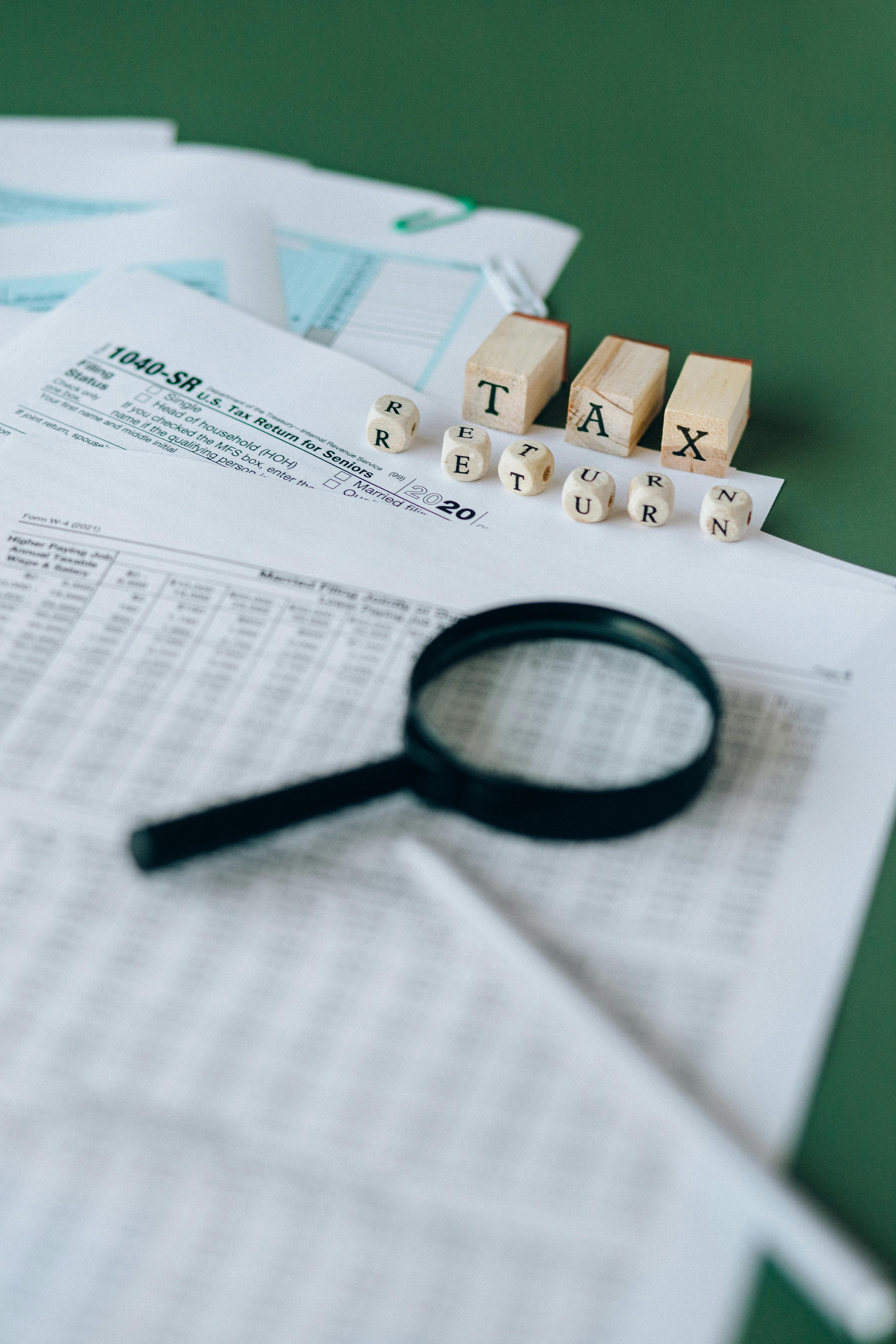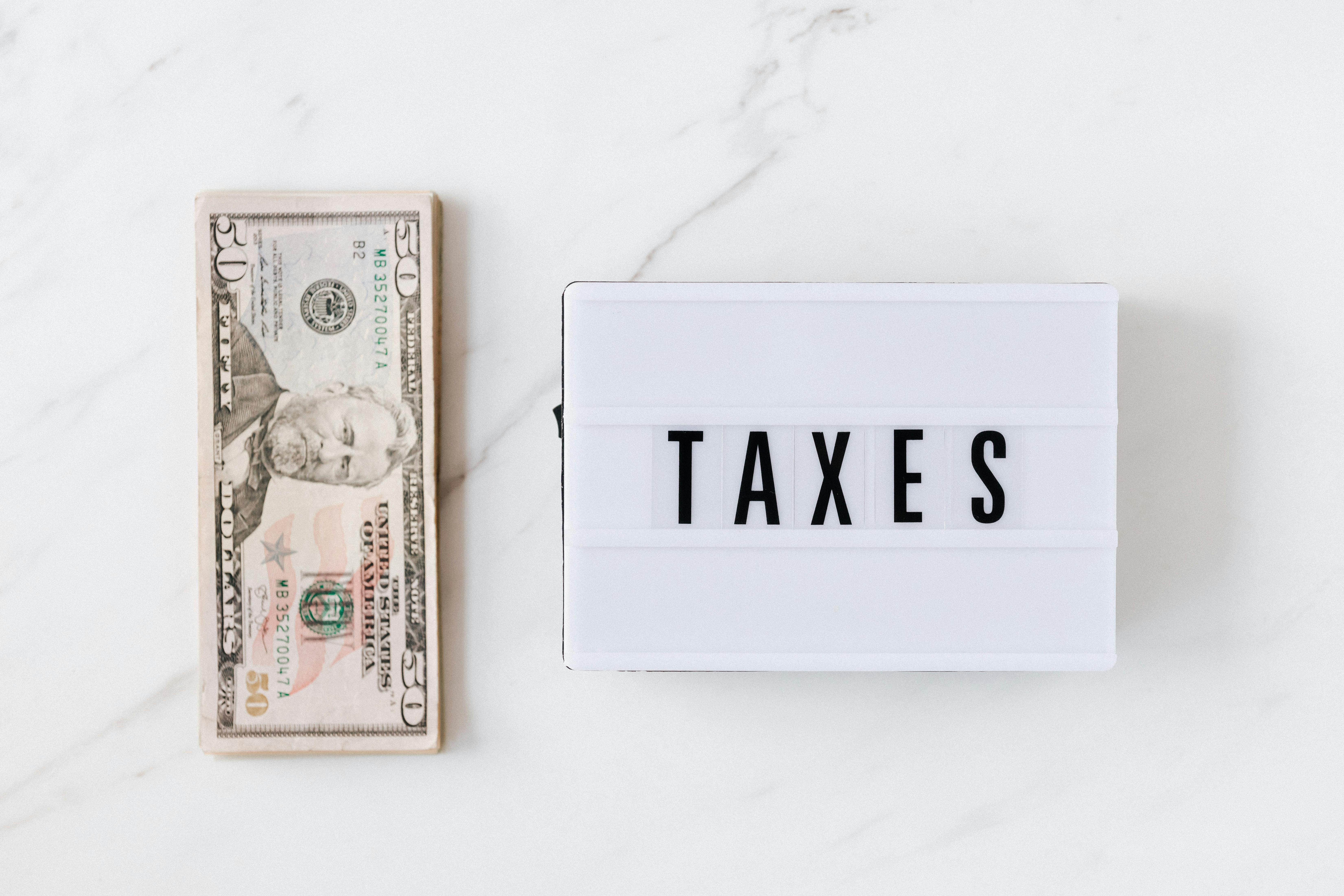In the fast-paced world of freelancing, it’s easy to get caught up in the excitement and forget about the less glamorous aspects, such as taxes. However, paying your estimated taxes is a crucial responsibility that freelancers must not overlook. Failing to do so can lead to penalties and unnecessary stress. So, don’t forget to mark your calendar and stay on top of your tax obligations. In this article, we’ll explore the importance of paying your estimated taxes and provide you with some helpful tips to simplify the process.
Importance of Paying Estimated Taxes
Paying estimated taxes is an important responsibility for self-employed individuals, freelancers, and contractors. By making regular estimated tax payments, you can avoid penalties, maintain good financial habits, and stay in compliance with tax laws. In this article, we will explore why it is important to pay estimated taxes, who needs to pay them, how to determine the amount to pay, when payments should be made, different methods of payment, the consequences of not paying estimated taxes, tips for managing them, common mistakes to avoid, and resources for calculating and paying estimated taxes.
Avoiding Penalties
One of the main reasons why paying estimated taxes is important is to avoid penalties. When you work for yourself or as a freelancer, you are responsible for paying your own taxes. Unlike traditional employees who have taxes withheld from their paychecks, self-employed individuals must estimate and pay their taxes on a quarterly basis. If you fail to make these estimated tax payments or if you underpay, you may be subject to penalties from the IRS. These penalties can add up and create unnecessary financial stress. By staying on top of your estimated tax payments, you can avoid these penalties and ensure that you are meeting your tax obligations.
Maintaining Good Financial Habits
Another key reason why paying estimated taxes is important is that it helps you maintain good financial habits. By making regular estimated tax payments, you are practicing good financial management and budgeting. You are setting aside a portion of your income to cover your tax liabilities, which can help prevent you from facing a large tax bill at the end of the year. This can reduce financial stress and enable you to keep track of your income and expenses throughout the year. It also helps you stay organized and prepared when it comes time to file your annual tax return. By maintaining good financial habits, you can ensure that you are on top of your tax obligations and avoid any unnecessary complications.
Staying in Compliance with Tax Laws
Paying estimated taxes is an essential part of staying in compliance with tax laws. As a self-employed individual, freelancer, or contractor, it is your responsibility to accurately report and pay your taxes. By making regular estimated tax payments, you are fulfilling this obligation and demonstrating your commitment to being a responsible taxpayer. Staying in compliance with tax laws not only protects you from penalties and issues with the IRS but also helps to maintain your reputation as a professional in your field. It is important to prioritize your tax obligations and take the necessary steps to ensure that you are meeting all of the requirements set forth by the IRS.
Who Needs to Pay Estimated Taxes
Not everyone needs to pay estimated taxes. However, there are certain groups of individuals who are required to make estimated tax payments. These groups include self-employed individuals, freelancers, and contractors. If you fall into any of these categories, you are considered to be responsible for paying your own taxes and should make estimated tax payments.
Self-Employed Individuals
Self-employed individuals, including sole proprietors and single-member LLCs, are required to make estimated tax payments. When you work for yourself and do not have taxes withheld from your income, you are responsible for estimating and paying your own taxes. This includes not just income tax but also self-employment tax, which covers Social Security and Medicare taxes. Self-employed individuals should make estimated tax payments throughout the year to ensure that they are meeting their tax obligations.
Freelancers
Freelancers, or individuals who work on a project or contract basis, are also responsible for making estimated tax payments. Freelancers typically receive income from multiple sources and are not considered traditional employees. As a result, they must estimate and pay their taxes on a quarterly basis. Freelancers should keep accurate records of their income and expenses and make estimated tax payments to avoid any penalties or issues with the IRS.
Contractors
Contractors, or individuals who perform work for a specific period of time or project, are another group that needs to pay estimated taxes. Similar to freelancers, contractors typically do not have taxes withheld from their paychecks and must estimate and pay their taxes on a quarterly basis. It is important for contractors to keep track of their income and expenses and make regular estimated tax payments to stay in compliance with tax laws.

How to Determine Estimated Tax Payments
Determining the amount of estimated tax payments to make can be a complex process. It involves calculating your income, calculating your deductions, and estimating your tax liability. Here are some steps to help you determine the amount of estimated tax payments you should make:
Calculating Income
The first step in determining your estimated tax payments is to calculate your income. This includes not just your earnings from your self-employed work, freelancing, or contracting, but also any other sources of income you may have, such as investments or rental properties. It is important to keep accurate records of your income throughout the year to ensure that you are reporting all of your earnings.
Calculating Deductions
After determining your income, you will need to calculate your deductions. Deductions are expenses that can be subtracted from your income to reduce your taxable income. Common deductions for self-employed individuals, freelancers, and contractors include business expenses, home office expenses, and travel expenses. It is important to keep track of your deductible expenses and consult with a tax professional to ensure that you are claiming all of the deductions you are eligible for.
Estimating Tax Liability
Once you have calculated your income and deductions, you can estimate your tax liability. This is the amount of tax you are expected to owe for the year. You can use tax software, online calculators, or consult with a tax professional to help you estimate your tax liability. It is important to take into account any credits or deductions you may qualify for to reduce your tax liability. By estimating your tax liability, you can determine the amount of estimated tax payments you should make throughout the year.
When to Make Estimated Tax Payments
Estimated tax payments are typically made on a quarterly basis. The IRS sets quarterly payment deadlines throughout the year. It is important to know these deadlines and make your payments on time to avoid any penalties. Here are the quarterly payment deadlines for estimated taxes:
Quarterly Payment Deadlines
- April 15: This is the deadline for the first quarter estimated tax payment. It covers income earned from January 1 to March 31.
- June 15: This is the deadline for the second quarter estimated tax payment. It covers income earned from April 1 to May 31.
- September 15: This is the deadline for the third quarter estimated tax payment. It covers income earned from June 1 to August 31.
- January 15: This is the deadline for the fourth quarter estimated tax payment. It covers income earned from September 1 to December 31.
It is important to note that if the deadline falls on a weekend or a holiday, the deadline is extended to the next business day. You should mark these deadlines on your calendar and make your payments accordingly.
Exceptions and Extensions
There are some exceptions and extensions to the quarterly payment deadlines. For example, if you have a fiscal year that does not follow the calendar year, your payment due dates may be different. Additionally, if you have a significant change in income or deductions during the year, you may be able to adjust your estimated tax payments. It is important to consult with a tax professional or refer to the IRS guidelines for more information on exceptions and extensions to the quarterly payment deadlines.

Methods of Paying Estimated Taxes
There are several methods you can use to pay your estimated taxes. The IRS provides different options to accommodate different taxpayer preferences. Here are two common methods of paying estimated taxes:
Electronic Payment Options
One method of paying estimated taxes is through electronic payment options. This includes using the IRS’s Electronic Federal Tax Payment System (EFTPS), which allows you to make secure and convenient payments online. To use EFTPS, you will need to enroll in the system and set up your payment schedule. You can also choose to make your payments using a debit or credit card through the IRS’s website.
Payment by Mail
Another option for paying estimated taxes is through payment by mail. To do this, you will need to complete Form 1040-ES, which is the estimated tax worksheet provided by the IRS. The form includes payment vouchers that you can detach and mail with your payment. Make sure to include your Social Security number or employer identification number on your payment to ensure proper credit.
It is important to keep track of your payments and retain records of your payments for future reference. This can help you reconcile your payments with your tax returns and provide proof of payment if necessary.
Consequences of Not Paying Estimated Taxes
Not paying estimated taxes can have serious consequences. If you fail to make your estimated tax payments or if you underpay, you may be subject to penalties and interest from the IRS. Here are some of the consequences of not paying estimated taxes:
Penalties and Interest
The IRS imposes penalties on individuals who fail to pay their estimated taxes or underpay. These penalties can add up and create unnecessary financial stress. The penalties are calculated based on the amount owed and the length of time the payment is overdue. Additionally, interest is charged on any unpaid tax liability. By not paying your estimated taxes, you can accrue significant penalties and interest, which can have a long-lasting impact on your financial well-being.
Audit Risk
Not paying estimated taxes can also increase your risk of being audited by the IRS. When you fail to pay your taxes or underpay, it can raise red flags and draw attention from the IRS. If you are audited, you may be required to provide documentation and evidence to support your income and deductions. This can be a time-consuming and stressful process. By paying your estimated taxes on time and in full, you can reduce your risk of being audited and avoid any unnecessary complications with the IRS.

Tips for Managing Estimated Taxes
Managing estimated taxes can be challenging, but there are strategies you can use to help simplify the process. Here are some tips for managing your estimated taxes effectively:
Keeping Accurate Records
Keeping accurate records of your income and expenses is crucial for managing your estimated taxes. This includes tracking your income from self-employment, freelancing, or contracting, as well as any other sources of income. It also includes maintaining documentation of your deductible expenses. By keeping detailed records, you can ensure that you are accurately reporting your income and claiming all of the deductions you are eligible for. This can help simplify the process of calculating your estimated tax payments and reduce the risk of errors.
Setting Aside Funds for Payments
Setting aside funds specifically for your estimated tax payments can help ensure that you have the necessary funds when it comes time to make your payments. By budgeting and allocating a portion of your income for taxes, you can avoid any financial strain or unexpected surprises. It is important to review your income and cash flow regularly and adjust your estimated tax payments as needed. By setting aside funds for your tax payments, you can stay on top of your tax obligations and minimize any impact on your day-to-day finances.
Consulting a Tax Professional
If you are unsure about how to manage your estimated taxes or if you have complicated financial situations, it may be beneficial to consult a tax professional. A tax professional can provide guidance and advice specific to your circumstances and help you navigate the complexities of the tax system. They can help you determine the amount of estimated tax payments to make, maximize your deductions, and ensure that you are in compliance with tax laws. By seeking the assistance of a tax professional, you can have peace of mind knowing that your estimated taxes are being managed properly.
Common Mistakes to Avoid
When it comes to paying estimated taxes, there are some common mistakes that individuals make. By avoiding these mistakes, you can ensure that you are meeting your tax obligations and minimizing any potential issues. Here are some common mistakes to avoid:
Underestimating Income
One common mistake is underestimating your income. This can lead to underpayment of estimated taxes and result in penalties and interest from the IRS. It is important to accurately estimate your income and consider any changes or fluctuations that may occur throughout the year. By being realistic about your income, you can avoid any potential surprises and ensure that you are making the appropriate estimated tax payments.
Forgetting Deductions
Forgetting to account for deductions is another common mistake. Deductions can help reduce your taxable income and lower your tax liability. It is important to keep track of your deductible expenses and consult with a tax professional to ensure that you are claiming all of the deductions you are eligible for. By taking advantage of deductions, you can reduce your tax liability and potentially increase your refund.
Missing Payment Deadlines
Missing payment deadlines is another common mistake that individuals make. It is important to mark the quarterly payment deadlines on your calendar and make your payments on time. By missing payment deadlines, you can incur penalties and interest from the IRS. It is helpful to set reminders and establish a routine for making your payments to ensure that you stay on track.

Resources for Calculating and Paying Estimated Taxes
There are several resources available to help you calculate and pay your estimated taxes. These resources can provide guidance and support to ensure that you are accurately reporting and meeting your tax obligations. Here are some resources you can use:
IRS Online Payment Portal
The IRS provides an online payment portal that allows you to make secure and convenient tax payments. The portal allows you to pay your estimated taxes electronically and offers various payment options, including direct debit from your bank account or payment by debit or credit card. The portal also provides access to forms, instructions, and other resources to help you manage your estimated tax payments effectively.
Tax Preparation Software
Tax preparation software, such as TurboTax or H&R Block, can also be helpful for calculating and paying your estimated taxes. These software programs guide you through the process of estimating your tax liability and provide step-by-step instructions for making your estimated tax payments. They can also help you maximize your deductions and ensure that you are in compliance with tax laws.
Tax Professionals
If you prefer personalized guidance and advice, you can consult with a tax professional. Tax professionals, such as certified public accountants (CPAs) or tax attorneys, can provide tailored support and help you navigate the complexities of the tax system. They can assist you in determining the amount of estimated tax payments to make, maximizing your deductions, and ensuring that you are meeting your tax obligations. By working with a tax professional, you can have peace of mind knowing that your estimated taxes are being managed properly.
Conclusion
Paying estimated taxes is an important responsibility for self-employed individuals, freelancers, and contractors. By making regular estimated tax payments, you can avoid penalties, maintain good financial habits, and stay in compliance with tax laws. It is crucial to accurately calculate your income and deductions, estimate your tax liability, and make your payments on time. By keeping accurate records, setting aside funds for payments, and consulting with a tax professional, you can effectively manage your estimated taxes and minimize any potential issues. Remember to avoid common mistakes and utilize available resources to ensure that you are accurately reporting and meeting your tax obligations. By prioritizing your estimated taxes, you can maintain a strong financial foundation and set yourself up for long-term success.

